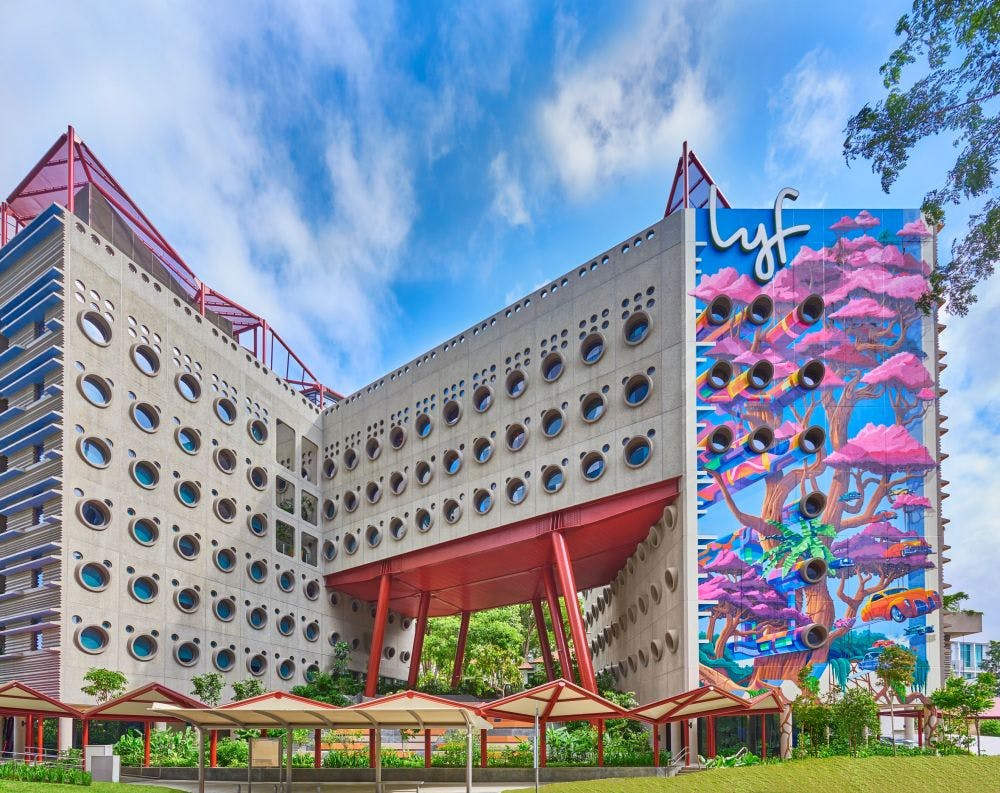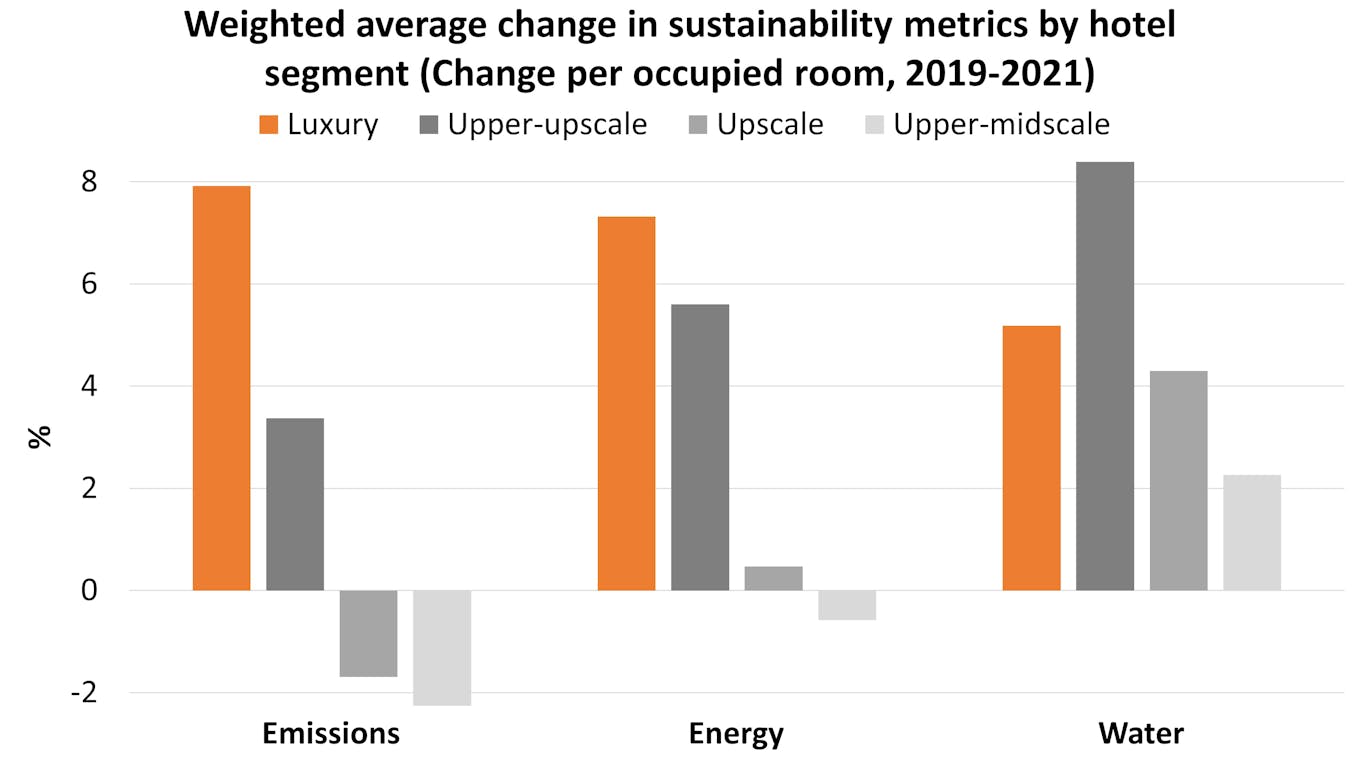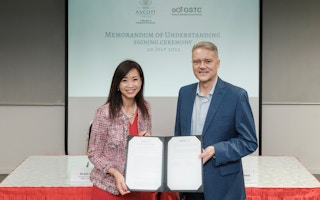Big hotels have the ability to neutralise their carbon emissions by mid-century, but setting a global pledge covering all the players might be too difficult, according to the head of a nonprofit that sets standards for what counts as sustainable tourism.
Instead, Randy Durband, chief executive of United States-based Global Sustainable Tourism Council (GSTC), is focusing on getting corporate “power players” that control large swathes of the hospitality business to nudge hotel clients towards green certification. Durband is also looking to tweak GSTC’s own standards to raise the bar for applicants seeking endorsement.
Hotels account for 1 per cent of global emissions, and the figure is set to increase. A 2017 review found that the industry needs to slash emissions by 66 per cent per room by 2030, and 90 per cent by 2050, for future growth to not cause an increase in carbon emissions.
But emissions were down just under 7 per cent per occupied room between 2019 and 2021, research published this month showed. Not everyone is playing ball: the emissions of higher class hotels had continued climbing.
Durband sees greater adoption of GSTC’s certification as key to a more sustainable future. But there are, by rough calculation, less than 1 per cent of hotels worldwide certified by its standard.
“We’re just going to keep pounding on [getting more hotels GSTC-certified], we’re working from every angle. That is not a threat, that is just what we are doing,” he told Singapore hoteliers last week at an event hosted by hospitality group Ascott.
Durband was in Singapore to sign a deal with Ascott to jointly provide over 700 hours of sustainability training to local hotel businesses this year, via in-person and online classes.
Ascott has over 900 properties in 40 countries, and is owned by Singapore real estate manager CapitaLand Investment. Beh Siew Kim, chief financial and sustainability officer for CapitaLand Investment’s lodging business, said the group wants to help address challenges in “an evolving sustainability landscape” through the training tie-up with GSTC.
Eco-Business spoke with Beh and Durband on the sidelines of the event about the barriers to certification adoption and their solutions for greening the hospitality industry.
What sort of skills are hoteliers lacking today? Are hard skills lacking, or is it more of a mindset issue?
Durband: I think it is more to do with mindset. People think they are missing some technical knowledge, but they could just open their minds to look at practical solutions.
There is so much to gain through awareness and training. I’ve seen housekeeping departments in hotels not following policies on towel reuse. Maybe if they know why such initiatives are being put in place, they will do better. Food waste is such a huge issue too. There are instant cost savings to be made but some hoteliers are unaware of the benefits of sustainability.
Beh: I’d say it is about both awareness and technical skills – awareness comes first. I think we are at a stage where people know they need to implement sustainability measures in their organisation, but are not sure how to.
Getting the right people to start this process is also important. Getting someone to rally everyone in the organisation is quite a tall order. But you get the awareness sorted once your management is on board. And then targets can be set, and the technical training can come in.
Do sustainability skills and mindsets differ across countries in Asia, and does that make certain geographies harder for sustainability programmes to succeed? Beh, you oversee operations in Cambodia, Japan, Myanmar, South Korea and Vietnam.
Beh: There is a lot of traction across different countries. Different countries have different requirements, but we are not setting different standards for our properties. They follow the Ascott programme, emissions targets, and all the initiatives we are working on.
We have country sustainability committees, and each comprises people from different functions. They all have the same targets to achieve. We have bimonthly sharing sessions globally, with some 700 people dialled in. These sessions breed competitiveness between the teams too, so that they try to outdo one another.

Ascott’s lyf one-north Singapore, a coliving property with over 300 units, that recently received GSTC certification. Ascott wants all its managed properties to be GSTC-certified by 2028. Image: The Ascott Limited
Durband: There isn’t much going on [for hotel sustainability] at the national level. Singapore is unique as a city-state, and there is also Turkey [which is mandating that all hotels go for GSTC certification].
It is still a minority of hotels that pursue GSTC certification. How do you deal with this inertia among some hoteliers, who know about all the sustainability measures and certifications but choose not to go for them?
Durband: Right now there are about 500 properties worldwide that are certified, but the number is growing.
People need a push, whether it is from regulation, or from understanding data on consumer behaviour. The consumer preference now is for more sustainability.
Beh: This is where regulations need to come in. There are people who will never [opt for certification] because they do not have to. Therefore regulators need to set the criteria, which is what the Singapore Tourism Board and the Singapore Hotel Association have done [with a hotel sustainability roadmap for heading towards net-zero emissions by 2050]. This is needed to get everybody on the sustainability journey.
Most people, with training and awareness will embark on the journey, provided they see the value. It goes back to the mindset issue, and getting management involved.
Is it challenging to get more hotels to go for GSTC certification?
Durband: We only created the accreditation manual in 2016, and we basically lost three years to Covid-19. But now there is a huge traction from regulatory pressures.
The pressure is also coming from buyers of hotel spaces. I am referring to wholesale buyers – business travel operators who bulk book hotel spaces. They are power players who occupy 30 per cent of the global market (the other fraction being leisure travel).
Business travel is dominated by a handful of major players, such as American Express Global Business Travel, CWT, Flight Centre and BCD [first three are GSTC members]. We are pushing such groups to create some kind of preferred contract for GSTC-certified properties and I think that is going to be a key lever of power.
In leisure travel there is the Tui Group, which has hundreds of brands globally – they are also looking at preferred contracting for GSTC-certified properties.
Beh: For hotel operators, project bidding processes now require us to disclose our sustainability practices. Booking.com [an online travel agency] ranks and pushes up more sustainable listings.
We say that if you are not sustainable, you will lose out on a big part of the business, and eventually you will be out of the game. It is not optional anymore, and is a part of risk management.
Both the GSTC certification, and the new global benchmarking tool by the Sustainable Hospitality Alliance (SHA), use process-based metrics – for instance, are hotels tracking water and energy use. Given the urgency to decarbonise, do you think the industry needs performance-based metrics instead – where hotels are asked to cut waste or emissions by a certain amount before getting certified?
Durband: Absolutely, and we are ourselves shifting to performance-based metrics. In the past, we didn’t think there were measurement tools that were universal and accessible enough. That is starting to change, and GSTC itself has expanded a bit.
In fact, we are partnering with SHA, Travelist and the Global Business Travel Association to identify open-source measurement tools. After vetting them we can tell the world that it is not just a few tools out there such as the [SHA’s] Hotel Carbon Measurement Initiative and the Hotel Water Measurement Initiative, there are others too. It is tricky because there is a huge industry of consultants that want to make money out of sustainability but we want open-source measurement tools that can be widely used.
On performance-based metrics, at our inception [in 2010] we resisted because we were trying to provide the same guidance to Zimbabwe, Germany, Laos, Singapore… all countries at different levels of economic development. Now we feel that many of the sustainability technologies are affordable, we are at a point where we can expect certain levels of performance from everybody.
Any examples of performance-based metrics you are looking at?
Durband: We are about to transition to having zero-tolerance for the small, single-use bottles of bathroom amenities. There is no reason to have them. The smallest hotels can now get suppliers to provide [reusable options], and you can get racks to secure them.
We will have a zero-tolerance policy, that we will put in place within the year, of no single-use small plastic amenities in the bathroom.
We have never been that specific before. We’ve always said reduce plastics, and show us the efforts you are taking. Now we are now increasingly saying: don’t do certain things – ever.
But what about mandating percentage cuts on, say, overall energy and water use?
Beh: I think individual properties will have to set their own targets because every property’s baseline is different. So that is where the Singapore Hotel Sustainability Roadmap is coming from – every property has to start measuring emissions from next year onwards. If you don’t, you can never improve.
Durband: We can set targets for water flow, for instance, and ask questions like: do you use recycled water for gardens – yes or no? These targets are performance-based too, and we can investigate whether properties are doing as they say they are.
Is a net-zero hospitality sector by 2050 target realistic? Is there a way to make an industry-wide formal target?
Durband: I think hospitality, hotels [net-zero] by 2050, absolutely. But the industry is too fragmented for an industry-wide target. Most operators in the hospitality industry are small businesses. The biggest hotel clusters and brands have thousands of hotels, but there are millions of listings on Booking.com.
But perhaps the hotels of size, have the opportunity to get to net-zero by 2050 because of their technology, processes and knowledge.
Nudging hotels to make formal concrete targets would have to done at the national level. There is no international organisation with teeth. The World Travel & Tourism Council (WTTC) is the only hospitality trade organisation but they haven’t done anything serious on net-zero [the WTTC has a roadmap towards net-zero emissions, but not a formal pledge].
Beh: It has to be regulators or stakeholders pushing. For us, CapitaLand Investment has a net-zero target, and as Ascott is part of the entity, we are also committed to the target. For Ascott, most of our portfolio is comprised of serviced apartments, which are very efficient in energy and water consumption, so it is definitely possible to achieve net-zero emissions.
A big chunk of hotel emissions are in the embodied emissions of building materials, and power grid emissions. Given that, how much does a focus on sustainability skills matter in the overall decarbonisation of a hotel?
Beh: Everything adds up. Energy use contributes to a big part of emissions, we agree and acknowledge that. Addressing it requires a different, technical skill set to ensure that your building is a lot more energy efficient.
This does not mean you ignore the operational aspect of decarbonisation.
Durband: Skills are related to awareness too, right? It is hard to separate them sometimes.
For example, hotels will send clients emails asking when they expect to arrive – this is so that the front desk can allocate rooms. Why doesn’t this information also get sent to the housekeeping department, so they don’t switch on the heater or air-conditioner at 2pm when the guest is only coming at 10 pm?
I think there are so many operational things that we can’t even conceive of, without more frequent cross-department discussions.
What can we do about luxury hotels? The latest Cornell Hotel Sustainability Benchmarking Index shows them moving much slower than limited service properties on sustainability. In fact, by some measures, emissions and energy use are even rising in luxury hotels.
Beh: I don’t think they aren’t doing anything. Different classes of hotels have different needs, amenities, room sizes, so it looks like emissions are higher per square metre. I think the data just tells us that there is more work to be done. That is what the benchmarking data is for.

Luxury hotels do worse on energy and emissions when measured on a per-room basis between 2019 to 2021. Data: Cornell Hotel Sustainability Benchmarking Index.
Of course, the luxury sector always has a lot more money. So their capital expenditure can be a lot more efficient in slashing emissions.
Durband: I think a lot of super luxury hotels are just stuck in their ways – “we’ve always done it this way”. They might change towels twice in the day, and then again in the evening.
Whereas, in say Ascott’s serviced apartments, you don’t change bed sheets every day and your customer expects that, the properties communicate that.
Are luxury hotels doing the research on what customers really want? The view on luxury is changing but are the hotels changing their operations to keep up with the times?
Is it a customer problem – that luxury clients expect more?
Durband: Well customers expect pampering at every level, that’s partially the reality. My point is: do we know what they want for sure? Perhaps as long as they get the chocolates and you tidy up a little, that’s cool. But do they need fresh towels again for the third time? They wanted that 30 years ago, but today?
Beh: Nowadays guests call us to complain if we put plastic water bottles in their rooms. They expect us to be more sustainable. Now we are putting in water filters in Ascott properties, so our guests can have filtered tap water instead of plastic bottles.
There will be guests still demanding such amenities, but that is a very small fraction of the clientele. We have very few complaints about not meeting luxury standards.
What is Ascott’s next big sustainability initiative?
Beh: We have set out our framework, we have aligned with the GSTC, we have set one, three and five-year targets, and we are working with all our global clusters.
I have seen a lot of traction from country committees, they are motivated to reach their KPIs.
There are a lot of things going on – we are working on Sustainability 101 training, we are working on procurement policies that spell out certifications required from our vendors. So I’d say we are very busy working on different initiatives to achieve our targets, which we review yearly.
This interview has been edited for clarity and brevity.








